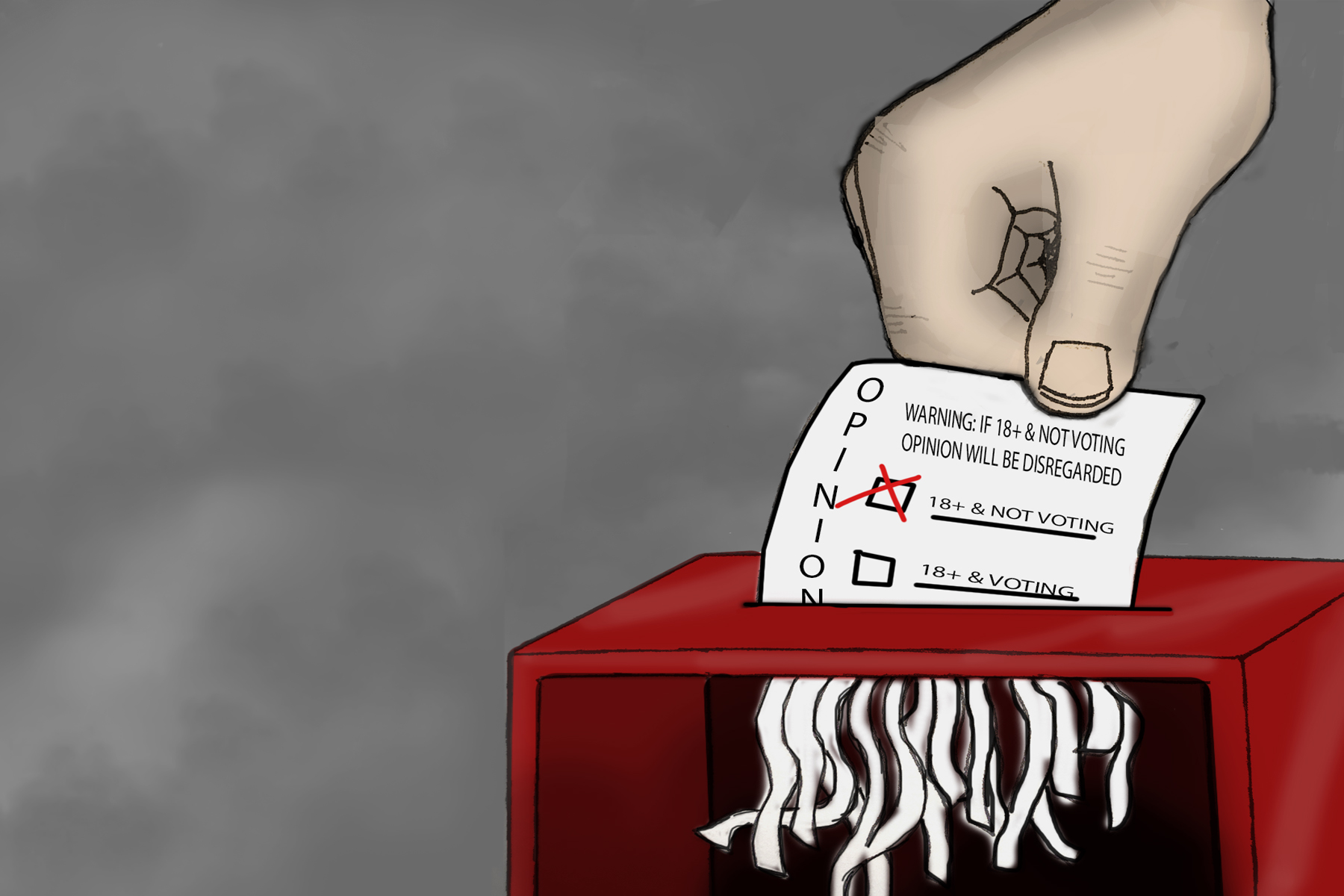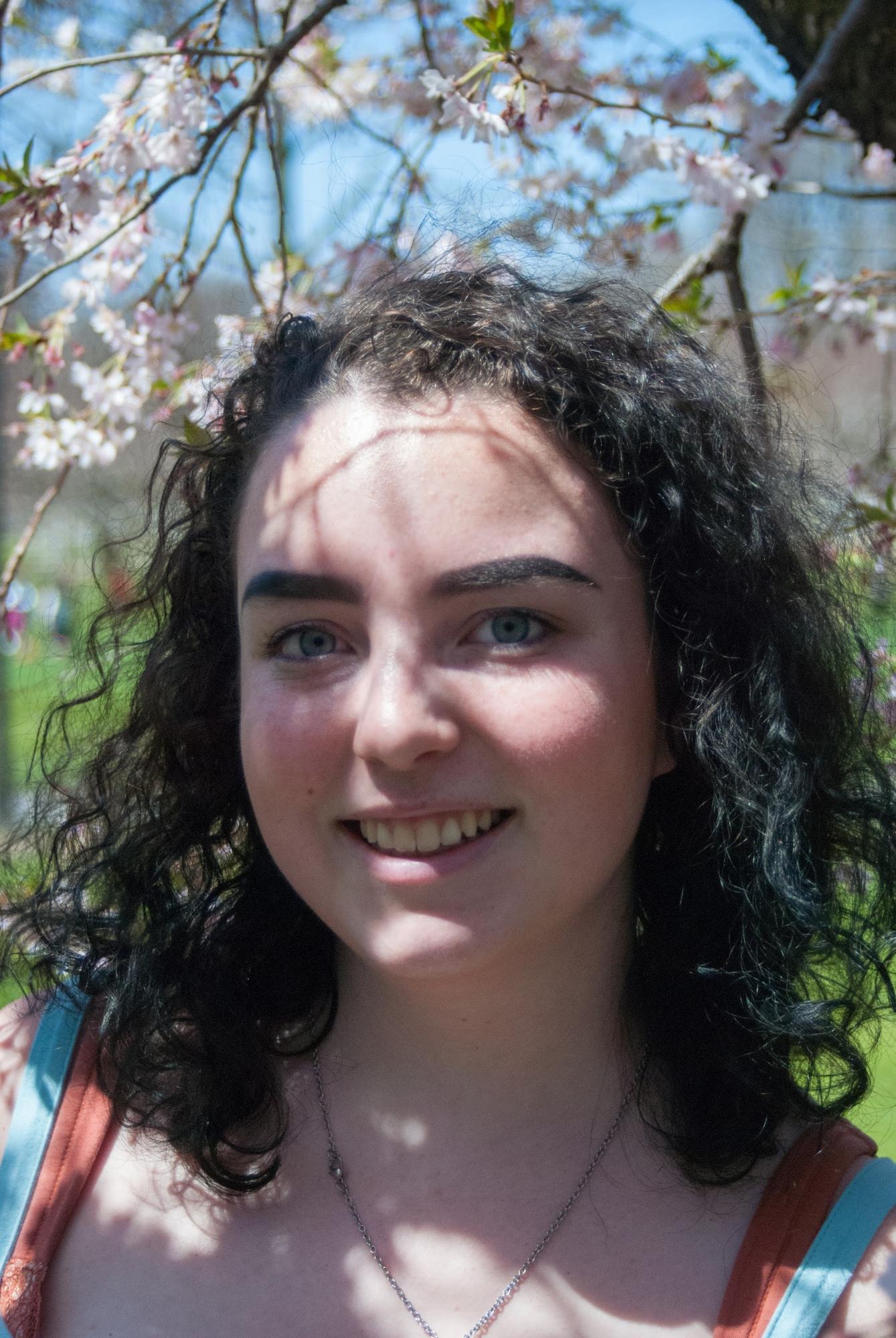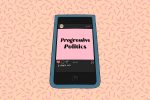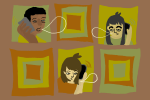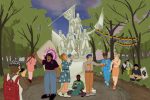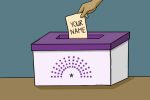Politics have always been the largest driving force in the world. Those in charge dictate what happens, who it happens to and what will happen to everyone else. It is the very core of where the world stands today and where it may end up tomorrow. Politics affect everyone, whether they’d like to believe it or not. And yet, there seems to be a troubling pattern among people claiming to be “non-political,” an entirely implausible notion in this day and age.
How does someone fail to get involved with a system that affects them on a day-to-day basis? How do you ignore reality as it happens right in front of you? There are many reasons why you should go about your life as a politically active person, especially if you are young. A political understanding of the world formulates your values, beliefs and the very matter that translates into your own identity. Don’t be someone who doesn’t care. Need convincing? Here are five reasons why you should be politically aware.
1. It Affects You and Everyone Around You
Contrary to popular belief, politics don’t exclusively concern middle-aged white men in poorly ironed suits; in fact, it’s quite the opposite. By definition, politics are the activities associated with the governance of a country or other area, especially the debate or conflict among individuals or parties having or hoping to achieve power. In this sense, politics is what dictates everything that happens around you.
The same white men — an unfortunate circumstance, I know — are the people making and breaking policies, legislation, laws and court cases. It’s simply impossible to say politics don’t affect you; an argument like this serves as the foundation for a destructive “ignorance is bliss” mindset.
Since the Brett Kavanaugh hearing I’ve talked to multiple people who had no idea the future-altering testimony was going on. Some didn’t even know who Kavanaugh was, which is haunting to say the least. The outcome of the Kavanaugh testimony affects women everywhere. Women who are sexually abused, silenced and who live everyday with the predetermined bias from men that their statements are invalid. If it’s not you, it’s someone you know, a friend of a friend, a mother, a teacher, the list goes on. The same goes for every other political event in history.
#BlackLivesMatter and police brutality may not affect you directly, but it is certainly changing the very future of the people around you, as well as the future of race-relations. Politics keeps you accountable, for yourself and for everyone else.
2. Political Debates Help You Navigate Your Own Values and Beliefs
Understanding politics, or specifically the topics that tend to collect in the political zone for analysis and debate, is a definitive way to navigate your own moral and ideological compass. Knowing where you stand on subjects such as abortion, health care, gun control and immigration can only benefit you in the end. If you give yourself the time to research and explore the sides of what’s being debated, you’ll likely find yourself naturally pulling toward one viewpoint or another.
Existing as a human in the world means existing in a time and space in which the entanglement of political conflict manifests itself in the day to day. What do you think if your friend doesn’t get hired because of her appearance? How do you feel when cyber bullying grows in your school? Does the record-breaking number of school shootings make sense to you? Why? Why not?
Practically every moment, controversial or not, that occurs in our world can be traced back or examined using a political lens. Creating your own values and having the tools to defend them is one of the strongest forms of self-expression. Everyone’s political identity aids in shaping important decision making and establishes the roots of your own personal beliefs. If you have something to believe in, you have something worth fighting for.
3. It’s One Step Closer to Being Less Ignorant
They say ignorance is bliss, but is that not just falsely justified apathy? It’s easier, sure, to erase politics from your immediate surroundings: curate your own Facebook feed, unfollow people who post about Trump, turn on HGTV instead of the news. Young and old people alike tend to follow this narrow path of artificially selected goodness, saturating themselves in wholesome, peaceable thoughts.
While this may seem harmless at first, the truth of the matter is that pretending everything is okay doesn’t make it disappear. In fact, it only serves to disrespect the people that are affected by the issues plaguing the country. To put it bluntly, so what if you don’t care? People are being hurt, wronged, tormented, slaughtered, rejected and are facing heaps of injustices each day. If you argue that a world without politics makes your life happily uncomplicated, then you are likely one of the lucky, unaffected few. Such a mindset is like sitting in a beach chair, sipping a margarita while a shark attack unfolds in the ocean right in front of your eyes; people are getting massacred, but you don’t mind because it’s not you or anyone you know that’s drowning.
Ignorance is not bliss. It is the highest form of selfishness. Understanding politics, harnessing the simple notion of caring about what’s going on in the world, is how human beings are able to feel for one another. Whether that be hate or compassion, it’s up to you, but it is feeling nonetheless.
4. It Perpetuates the Myth That Young People Don’t Care
Younger generations are especially susceptible to the ignorance trap and existing inside a bubble impenetrable by political conflict, because they often aren’t expected to follow politics. It’s something that must be sought out and researched, often beyond the typical high school social studies course.
This has led to the idea that young people don’t care about politics or the future of the country because they just don’t understand it, or don’t feel the need to. There’s a misconception that young people don’t know what the hell they’re talking about, but being able to discuss political issues and keep up with the news is another way to stick it to these adults sharing uninformed political posts on Facebook, claiming they know so much because they’re above the age of 50.
Young people are savvy. In many ways, they know way more methods of accessing and obtaining information that older generations are simply unaware of. I, for instance, get news alerts sent right to my phone. It’s all right there, you only need to reach out and grab it.
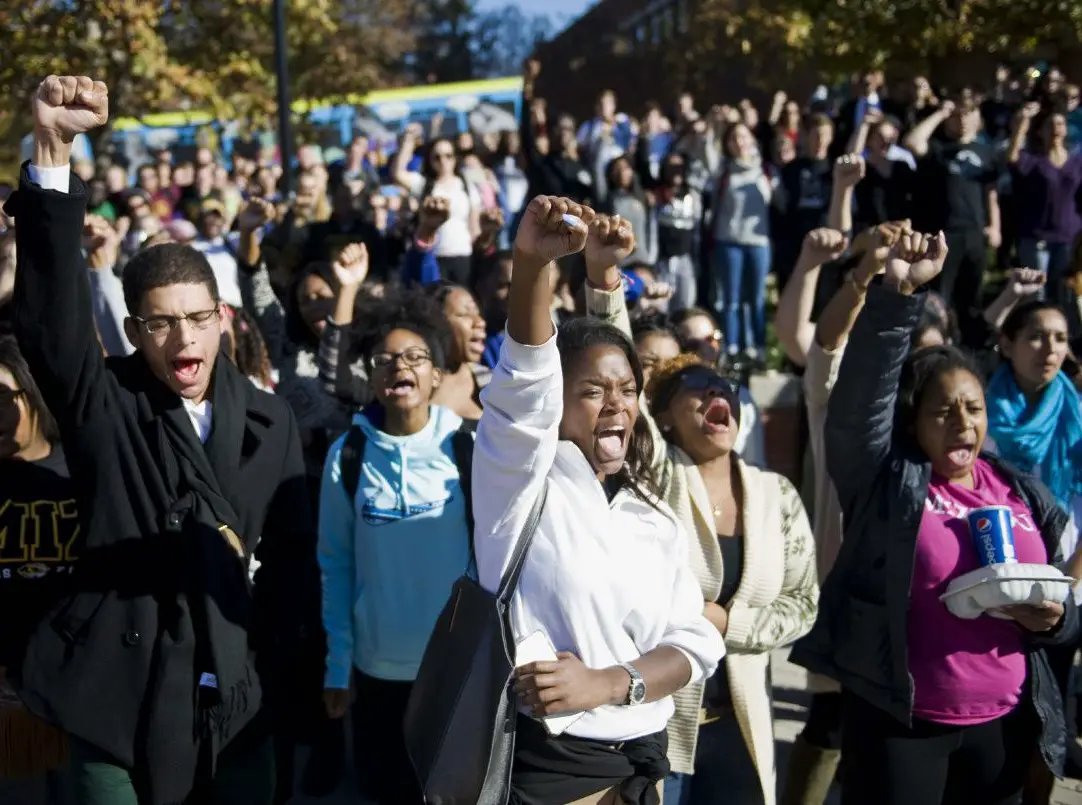
The newer generations are tremendously smart, and they do care, regardless of what some people think. Nearly everyone I interact with deliberately goes out of their way to express their views on political subjects and isn’t afraid to be heard. But the progress completed by the youth who are involved is often diminished because there’s a population of young people who don’t associate themselves with being politically active.
Older folks love to believe that every kid is like this, and therefore, in their eyes, none of them have any substantial thoughts or ideas worth listening to. Breaking down this stereotype by attempting to engage yourself in politics is a great way to enforce the idea that young people are aware of what’s going on in the world and they want to be a part of it. Young voices deserve to be heard with dignity and respect. A majority of what occurs nationally and internationally affects their population directly, and everything enacted will be a part of their future.
5. You’re Missing Out on History As It Happens
Rosa Parks. Roe v. Wade. Gay marriage. Aleppo. Global warming. #MeToo. #BlackLivesMatter. Loving v. Virginia. This is only the tiniest fraction of the thousands of terms related to momentous history-changing events and policies in the last century alone. When picking up a history textbook it almost feels surreal. How could these things have happened? The grandness of history seems almost unfathomable, and perhaps that’s one of the reasons why people tend to gravitate toward the stories of their ancestors, the people who have seen it all and lived to tell the tale. It’s like talking to a real-life textbook. History becomes tangible.
And yet, some people, younger generations in particular, are completely unfazed by the idea of history slipping past them unnoticed. To be fortunate enough to live in a time when movements like #MeToo and #BlackLivesMatter are in full swing, which are sure to take up chapters in the history books of the future, is unreal. Yes, it is a time of chaos and injustice, but it’s also a time of hope and resilience.
If you could go briefly go back in time to the 1963 March on Washington just to say that you supported what Martin Luther King Jr. stood for, wouldn’t you? Wouldn’t you want to tell those people in the streets that what they were fighting for mattered, that it had an impact they couldn’t even begin to imagine? To be active in politics is to be on the front lines, to witness change as it happens, to be part of a greater whole you helped contribute a piece to. Saying you “aren’t political” isn’t only selfish, it’s foolish.


